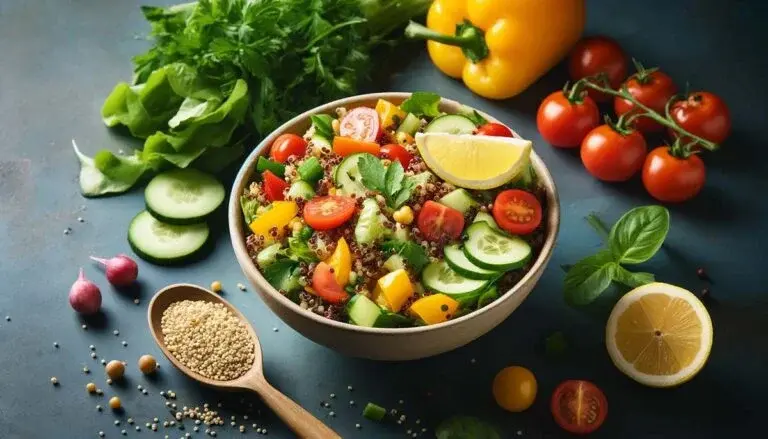Vegetarianism “Wellhealthorganic.Com:Vegetarian Protein Sources” is a dietary choice that excludes meat and fish but includes a variety of other nutrient-rich foods. One common concern for vegetarians is ensuring an adequate intake of protein, which is essential for building and repairing tissues, producing enzymes and hormones, and supporting overall health. This comprehensive guide “Wellhealthorganic.Com:Vegetarian Protein Sources” explores a variety of vegetarian protein sources, highlighting their benefits, nutritional profiles, and ways to incorporate them into your diet.
Understanding Protein and Its Importance
What is Protein?
Protein is a macronutrient composed of amino acids, which are the building blocks of the body. There are 20 different amino acids, nine of which are essential, meaning they must be obtained from the diet. Proteins “Wellhealthorganic.Com:Vegetarian Protein Sources” are crucial for numerous bodily functions, including muscle repair and growth, enzyme production, and immune system support.
Importance of Protein in the Diet
Protein is vital for maintaining and repairing body tissues, supporting immune function, and producing enzymes and hormones. It also plays a role in maintaining a healthy weight, as it promotes satiety and helps preserve lean muscle mass during weight loss. For vegetarians, consuming a variety of protein sources ensures that all essential amino acids are included in the diet.
Types of Vegetarian Protein Sources
Legumes
Lentils
Lentils are a versatile and nutritious source of protein, offering about 18 grams of protein per cooked cup. They are also rich in fiber, iron, and folate, making them an excellent addition to a balanced diet. Lentils can be used in soups, stews, salads, and even as a meat substitute in dishes like lentil burgers.
Chickpeas
Chickpeas, also known as garbanzo beans, provide approximately 15 grams of protein per cooked cup. They are a great source of fiber, vitamins, and minerals, including iron, magnesium, and folate. Chickpeas can be enjoyed in a variety of ways, such as in hummus, salads, stews, and roasted as a crunchy snack.
Black Beans
Black beans offer around 15 grams of protein per cooked cup and are packed with fiber, folate, and magnesium. They are versatile and can be used in numerous dishes, including soups, salads, burritos, and veggie burgers. Black beans also have a rich, satisfying flavor that enhances many vegetarian recipes.
Nuts and Seeds
Almonds
Almonds are a nutrient-dense snack, providing about 6 grams of protein per ounce (approximately 23 almonds). They are also rich in healthy fats, fiber, vitamin E, magnesium, and potassium. Almonds can be eaten raw, roasted, or added to salads, oatmeal, and baked goods for a protein boost.
Chia Seeds
Chia seeds are tiny powerhouses of nutrition, offering 4 grams of protein per 2 tablespoons. They are also an excellent source of omega-3 fatty acids, fiber, and antioxidants. Chia seeds can be added to smoothies, yogurt, oatmeal, and used to make chia pudding.
Pumpkin Seeds
Pumpkin seeds, or pepitas, provide about 7 grams of protein per ounce. They are also rich in magnesium, zinc, and healthy fats. Pumpkin seeds can be enjoyed as a snack, sprinkled on salads, or added to granola and baked goods for a nutrient boost.
Grains and Pseudograins
Quinoa
Quinoa is a complete protein, meaning it contains all nine essential amino acids. It provides about 8 grams of protein per cooked cup and is also a good source of fiber, iron, magnesium, and manganese. Quinoa can be used as a base for salads, in soups, or as a side dish.
Amaranth
Amaranth is another protein-rich pseudograin, offering 9 grams of protein per cooked cup. It is also high in fiber, iron, magnesium, and phosphorus. Amaranth can be used in porridge, salads, soups, and as a substitute for rice or pasta.
Buckwheat
Buckwheat provides about 6 grams of protein per cooked cup and is a good source of fiber, magnesium, and manganese. It is often used in traditional dishes like soba noodles, but can also be used in porridge, pancakes, and salads.
Dairy and Dairy Alternatives

Greek Yogurt
Greek yogurt is a protein-rich dairy product, offering about 10 grams of protein per 100 grams. It is also a good source of calcium, probiotics, and vitamins. Greek yogurt can be enjoyed on its own, with fruit and granola, or used in smoothies and baking.
Cottage Cheese
Cottage cheese provides approximately 11 grams of protein per 100 grams and is also rich in calcium and B vitamins. It can be eaten on its own, with fruit, or used in savory dishes like lasagna and stuffed peppers.
Plant-Based Milks
Plant-based milks, such as soy milk, almond milk, and oat milk, can be good sources of protein, especially when fortified. Soy milk, in particular, offers about 7 grams of protein per cup. These milks can be used in smoothies, baking, and cooking as a dairy alternative.
Soy Products
Tofu
Tofu is a versatile soy product that provides about 10 grams of protein per 100 grams. It is also a good source of calcium, iron, and other minerals. Tofu “Wellhealthorganic.Com:Vegetarian Protein Sources” can be used in a variety of dishes, including stir-fries, soups, salads, and desserts.
Tempeh
Tempeh is a fermented soy product with a firm texture and nutty flavor. It offers approximately 19 grams of protein per 100 grams and is also rich in fiber, iron, and probiotics. Tempeh can be grilled, sautéed, or crumbled into dishes like tacos and salads.
Edamame
Edamame are young soybeans that provide about 11 grams of protein per 100 grams. They are also a good source of fiber, vitamins, and minerals. Edamame can be enjoyed as a snack, added to salads, or included in stir-fries.
Health Benefits of Vegetarian Protein Sources
Nutrient Density
Many vegetarian protein sources are nutrient-dense, meaning they provide a high amount of vitamins, minerals, and other beneficial compounds relative to their calorie content. This can contribute to overall health and help prevent nutrient deficiencies.
Heart Health
Vegetarian protein sources, such as legumes, nuts, and seeds, are often rich in heart-healthy nutrients like fiber, omega-3 fatty acids, and antioxidants. These nutrients can help lower cholesterol levels, reduce inflammation, and decrease the risk of heart disease.
Weight Management
Protein is known to promote satiety, which can help with weight management. Vegetarian protein sources, when combined with a balanced diet and regular exercise, can support healthy weight loss or maintenance by keeping you fuller for longer and reducing overall calorie intake.
Digestive Health
Many vegetarian protein sources, such as beans, lentils, and whole grains, are high in fiber, which is essential for digestive health “Wellhealthorganic.Com:Vegetarian Protein Sources” . Fiber helps regulate bowel movements, prevent constipation, and maintain a healthy gut microbiome.
Incorporating Vegetarian Protein Sources into Your Diet

Breakfast Ideas
Start your day with a protein-rich breakfast to fuel your body and keep you satisfied. Some ideas include:
- Greek yogurt with fruit and granola
- Oatmeal topped with chia seeds and almond butter
- Smoothies made with plant-based protein powder, spinach, and berries
- Scrambled tofu with vegetables and whole grain toast
Lunch and Dinner Ideas
Incorporate vegetarian protein sources into your main meals to ensure you meet your daily protein needs. Some ideas include:
- Quinoa salad with chickpeas, vegetables, and a tahini dressing
- Lentil soup with whole grain bread
- Black bean tacos with avocado, salsa, and lettuce
- Stir-fried tofu with broccoli, bell peppers, and brown rice
Snack Ideas
Healthy snacks can help you stay energized between meals and provide an additional protein boost. Some ideas include:
- Hummus with carrot and cucumber sticks
- Almonds or mixed nuts
- Edamame sprinkled with sea salt
- Cottage cheese with pineapple or berries
Common Concerns and Misconceptions

Complete vs. Incomplete Proteins
A common misconception is that plant-based proteins “Wellhealthorganic.Com:Vegetarian Protein Sources” are incomplete and cannot meet all essential amino acid requirements. While it is true that most plant proteins do not contain all nine essential amino acids in the same proportions as animal proteins, a varied diet that includes different plant-based proteins “Wellhealthorganic.Com:Vegetarian Protein Sources” can provide all the essential amino acids.
Protein Deficiency
Concerns about protein deficiency are often overstated for those following a well-planned vegetarian diet. By including a variety of protein-rich foods, vegetarians can easily meet their protein needs. Monitoring your diet “Wellhealthorganic.Com:Vegetarian Protein Sources” and ensuring you consume enough protein can help prevent any deficiencies.
Digestive Issues
Some people may experience digestive issues when consuming certain vegetarian protein sources, such as beans and lentils, due to their high fiber content. Gradually increasing “Wellhealthorganic.Com:Vegetarian Protein Sources” fiber intake and using digestive aids like soaking beans or using over-the-counter enzymes can help mitigate these issues.
Conclusion
Vegetarian protein sources are diverse, nutritious, and capable of meeting the protein needs of individuals following a vegetarian diet. By understanding the different types of vegetarian proteins “Wellhealthorganic.Com:Vegetarian Protein Sources” and how to incorporate them into your meals, you can enjoy a balanced and healthful diet that supports your overall well-being. Whether you’re motivated by health reasons, ethical concerns, or environmental factors, embracing vegetarian protein sources can be a fulfilling and beneficial choice.
Frequently Asked Questions About “Wellhealthorganic.Com:Vegetarian Protein Sources”
Q1. What are some high-protein vegetarian foods?
A1. High-protein vegetarian foods include legumes (such as lentils, chickpeas, and black beans), tofu, tempeh, edamame, quinoa, nuts and seeds (such as almonds, chia seeds, and hemp seeds), dairy products (such as Greek yogurt and cottage cheese), and eggs. These foods “Wellhealthorganic.Com:Vegetarian Protein Sources” provide a substantial amount of protein and are essential components of a balanced vegetarian diet.
Q2. How much protein do vegetarians need daily?
A2. The daily protein requirement for vegetarians varies based on age, gender, and activity level. On average, adults need about 0.8 grams of protein per kilogram of body weight. For those engaged in regular physical activity “Wellhealthorganic.Com:Vegetarian Protein Sources” or strength training, the requirement may increase to 1.2 to 2.2 grams per kilogram. It’s essential for vegetarians to include a variety of protein sources to meet their daily needs and ensure they get all essential amino acids.
Q3. Can vegetarians get complete proteins “Wellhealthorganic.Com:Vegetarian Protein Sources” from plant-based sources?
A3. Yes, vegetarians can get complete proteins “Wellhealthorganic.Com:Vegetarian Protein Sources” from plant-based sources by combining different foods that together provide all essential amino acids. Quinoa, buckwheat, hemp seeds, and chia seeds are examples of plant-based foods that are complete proteins. Additionally, combining foods like rice and beans, or whole wheat bread and peanut butter, can also provide complete proteins.
Q4. How does tofu compare to meat in terms of protein content?
A4. Tofu is a versatile and nutritious plant-based protein source. A 100-gram serving of tofu contains about 8 grams of protein, while a similar serving of chicken breast contains about 31 grams. Although tofu has less protein per serving compared to meat, it is still an excellent source of protein, especially when consumed as part of a varied diet. Tofu “Wellhealthorganic.Com:Vegetarian Protein Sources” is also low in saturated fat and contains beneficial nutrients like calcium and iron.
Q5. What are some protein-rich vegetarian breakfast options?
A5. Protein-rich vegetarian breakfast options include Greek yogurt with fruit and nuts, scrambled tofu with vegetables, chia seed pudding, overnight oats with almond butter, and whole grain toast with avocado and poached eggs “Wellhealthorganic.Com:Vegetarian Protein Sources” . These meals provide a good balance of protein, healthy fats, and carbohydrates to start the day with sustained energy and satiety.
Q6. Are protein supplements necessary for vegetarians?
A6. Protein supplements are not necessary for most vegetarians if they consume a balanced diet that includes a variety of protein-rich foods. However, for those who struggle to meet their protein “Wellhealthorganic.Com:Vegetarian Protein Sources” needs through food alone, or for athletes and bodybuilders requiring higher protein intake, supplements like plant-based protein powders (pea, hemp, soy, etc.) can be a convenient option to ensure adequate protein intake.
Q7. How can vegetarians ensure they get enough protein when eating out?
A7. Vegetarians can ensure they get enough protein when eating out by choosing dishes that feature legumes, tofu, tempeh, or dairy products. Look for salads with beans or lentils, stir-fries with tofu, or grain bowls with quinoa. When in doubt, ask for extra protein-rich “Wellhealthorganic.Com:Vegetarian Protein Sources” toppings like nuts, seeds, or cheese. Many restaurants now offer vegetarian and vegan options that cater to protein needs.
Q8. What are some high-protein vegetarian snacks?
A8. High-protein vegetarian snacks include hummus with vegetable sticks, Greek yogurt with honey and nuts, roasted chickpeas, edamame, cottage cheese with fruit, protein bars made from nuts and seeds, and smoothies with protein powder. These snacks “Wellhealthorganic.Com:Vegetarian Protein Sources” are not only rich in protein but also provide essential vitamins and minerals to keep you energized between meals.
Q9. How does the protein quality of plant-based sources compare to animal-based sources?
A9. The protein quality of plant-based sources is often lower than that of animal-based sources because most plant proteins “Wellhealthorganic.Com:Vegetarian Protein Sources” are incomplete, lacking one or more essential amino acids. However, by consuming a variety of plant-based proteins throughout the day, vegetarians can ensure they get all essential amino acids. Some plant-based proteins, like quinoa and soy, are complete proteins “Wellhealthorganic.Com:Vegetarian Protein Sources” , offering a similar amino acid profile to animal-based proteins.
Q10. Can a vegetarian diet support muscle building?
A10. A vegetarian diet can support muscle building when it includes sufficient protein and a variety of nutrient-dense foods. Combining different plant-based protein sources ensures a complete amino acid profile. Incorporating high-protein foods like legumes, tofu, tempeh, quinoa, nuts, seeds, dairy, and eggs (if ovo-lacto vegetarian) can provide the necessary protein “Wellhealthorganic.Com:Vegetarian Protein Sources” to support muscle growth and repair. Regular strength training and proper nutrition timing also play crucial roles in muscle building.
Q11. What are the benefits of including vegetarian protein sources in your diet?
A11. Including vegetarian protein sources in your diet offers several benefits, such as lower saturated fat intake, higher fiber intake, and increased consumption of vitamins, minerals, and antioxidants. Plant-based proteins “Wellhealthorganic.Com:Vegetarian Protein Sources” are often accompanied by other beneficial nutrients, such as fiber and phytonutrients, which can improve digestion, reduce the risk of chronic diseases, and support overall health. A varied vegetarian diet can also contribute to better weight management and environmental sustainability.
Q12. How can vegetarians balance their diet to ensure adequate protein intake?
A12. Vegetarians can balance their diet to ensure adequate protein intake by incorporating a variety of protein-rich foods into each meal. Combining legumes with grains, consuming nuts and seeds, including dairy products “Wellhealthorganic.Com:Vegetarian Protein Sources” or plant-based milk, and using soy products like tofu and tempeh can help meet protein needs. Planning meals to include protein sources and snacking on high-protein foods can also ensure consistent protein intake throughout the day.
